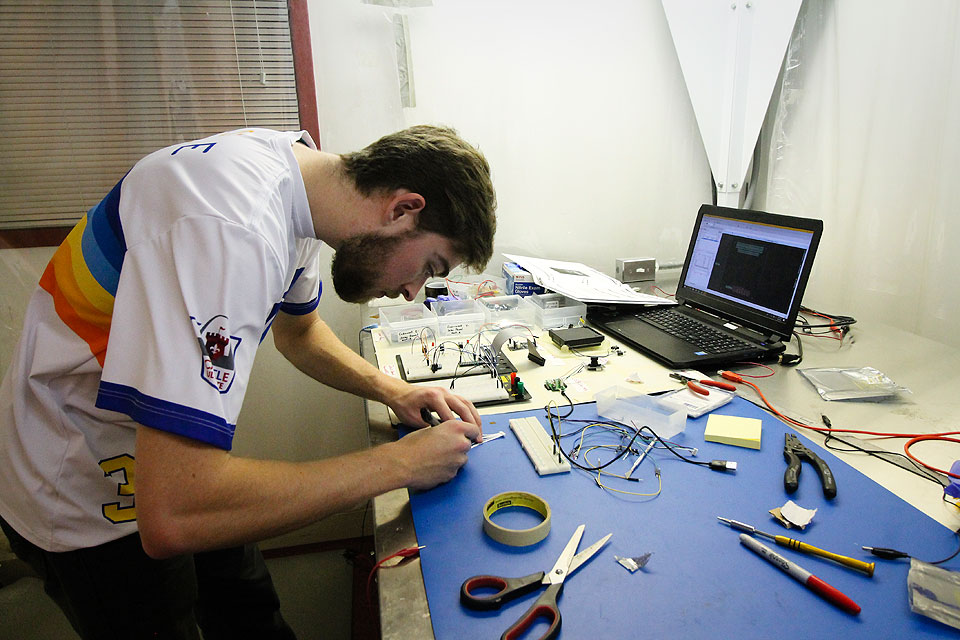SLU Students Send Satellite to Space
Billiken engineering students are hard at work attempting to launch satellites into orbit. A team at Saint Louis University is currently at work on a CubeSat – a small satellite – that will launch in January 2020.

If all goes well, it will orbit earth and test a program that would sort image data. If the CubeSat fails, as a similar project did in 2015, to make it beyond the Earth’s atmosphere, the experience will still teach students valuable lessons, said Michael Swartwout, Ph.D., associate professor of aerospace and mechanical engineering at SLU and the project’s supervising faculty member.
“The best training for spacecraft engineers is to get something built and flying,” he said. “It’s to take an idea, get it engineered, to get it built and to get it into space. There’s a learning curve. There is a mistake curve.”
Flying and failing as a student, he continued, can ultimately make students more resilient employees for space industry employers because they’ve developed skills for coping with high pressure, high risk situations in their undergraduate work.
“You have to have a strong heart and a thick skin to be in this industry,” Swartwout said. “You don’t really learn unless you burn your fingers. Because, until you’ve put it through the fire of space operations, you don’t know.”
Launching Careers
Swartwout says the best way for students to learn is through the hands-on projects they undertake in SLU’s engineering labs.
Those projects are informed by faculty member research, like Swartwout’s ongoing CubeSat database – a premier resource he developed that is used by NASA, the U.S. Air Force and space industry leaders.
The research-informed, hands-on approach of SLU’s engineering classes gives its students an edge, he said, when it comes to seeking out professional and graduate opportunities.
“Everyone’s going to have great classes, everyone’s going to have outstanding teachers,” Swartwout said. “But when you go into that interview and they see that fluid mechanics class, they aren’t going to ask you about that exam. Employers are going to ask about your project.”
“There are a lot of resumes in that stack but what are those things that will make you a known commodity?” he continued. “What sets you apart? Those skills – collaboration, cooperation, resilience – are what you learn here when you fly a spacecraft before graduation.”

















